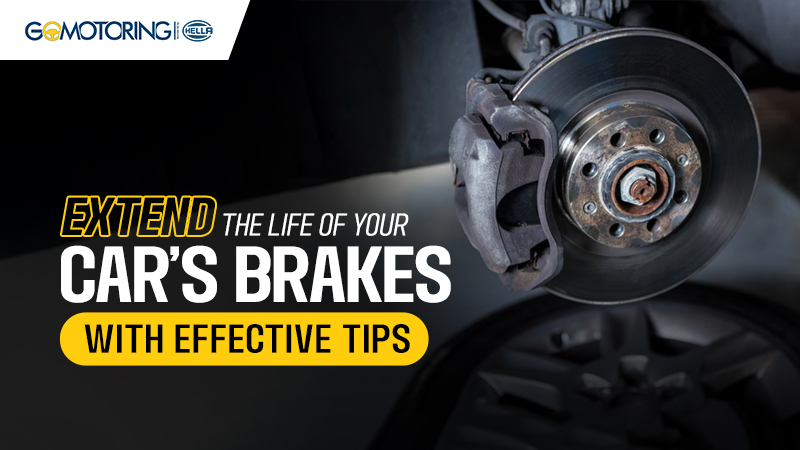The surge in petrol prices exceeding 100 rupees has transformed fuel into a precious resource that demands careful usage. Despite leading car manufacturers striving to provide vehicles that boast of exceptional fuel efficiency, the paramount factor determining the fate of iconic models has shifted to mileage. It has now overtaken the once dominant role of price in the minds of potential buyers. As a result, a typical customer is hesitant to invest their hard-earned money in a vehicle that delivers a meager single-digit mileage.
Your vehicle's mileage can be influenced by a multitude of factors, such as excessive loads, abrupt acceleration, incorrect gear changes, inadequate tyre pressure, and suboptimal maintenance. If you're searching for ways to maximize your vehicle's fuel efficiency, consider adopting the given valuable tips to achieve the best possible mileage, cost savings, and efficiency.
Tips to increase car mileage
If you're wondering how to improve the mileage of your petrol or diesel vehicle, look no further. These tips and tricks will help you achieve up to a 30% increase in fuel efficiency while also enhancing your car's overall performance.
- Keep the tyre pressure correct
- Avoid opening windows on highways
- Don't drive above 125km/hr
- Fill the fuel in the morning
- Use quality engine oil
Keep the tyre pressure correct
Maintaining the correct tyre pressure is essential for achieving optimal fuel efficiency. When your tyre pressure is too low, your vehicle has to work harder to move, requiring more fuel to do so. Keeping your tyres properly inflated not only improves your mileage but also extends the life of your tyres.
Optimum driving speed
If you are driving on a highway that supports speeds above 125 km/h, it's best to use the highest gear available, such as the sixth gear for seven-speed DSG/DCT and nine-speed torque converters. This is because higher gears help to keep the RPM levels low, which can lead to improved fuel efficiency and better car mileage.
If you are driving on a highway that supports speeds above 125 km/h, it's best to use the highest gear available, such as the sixth gear for seven-speed DSG/DCT and nine-speed torque converters. This is because higher gears help to keep the RPM levels low, which can lead to improved fuel efficiency and better car mileage.
Avoid opening windows on highways
To maximize your car's fuel efficiency, it's better to use the air conditioning system rather than opening the windows while driving on highways. This is because the aerodynamics of your car plays a crucial role in determining the power required to reach a particular speed. Although using the AC can decrease your car's mileage, turning it off and rolling down the windows can worsen the car's aerodynamics and increase the drag coefficient, leading to higher fuel consumption. Therefore, on highways, it's recommended to use the AC to maintain optimal aerodynamics and minimize fuel consumption. However, in cities, opening windows is generally acceptable as the driving speeds are typically lower.
Use quality engine oil
Using the right grade and quality of engine oil is essential to ensure that your vehicle performs at its best and returns maximum mileage. Hella engine oil ensures the best quality oil for your vehicle. The engine oil grade, viscosity, and quality are all critical factors that determine how efficiently the engine performs and how much mileage the vehicle returns. Therefore, it is essential to use high-quality Hella engine oil with the correct viscosity and grade. This simple step can make a significant difference in how your vehicle performs and the mileage it returns.
Regular maintenance and servicing
Achieving maximum fuel efficiency and mileage largely depends on the condition of your engine. Regular maintenance and servicing are crucial to ensure a healthy and efficient engine. Neglecting engine maintenance can gradually reduce your car's fuel efficiency over time. It's always a wise decision to get your car serviced on time. During servicing, it's important to check and replace components such as engine oil, spark plugs, air and fuel filter. A clogged air filter can allow dirty air to enter the engine, resulting in increased fuel consumption. If you're a frequent driver, it's recommended to get your oxygen sensors checked every 60,000 km. A malfunctioning oxygen sensor can reduce fuel efficiency by more than 20%. So, if you notice a drop in mileage, don't hesitate to contact the service center and schedule an appointment.
Final Words
Small changes in your driving habits and regular maintenance of your vehicle can go a long way in increasing its mileage and extending its lifespan. So, start implementing these measures today and enjoy a more economical and eco-friendly ride!
Want more of the world of automotive–check out the social media pages of GoMotoring. Connect anywhere, Twitter, Facebook, and Instagram.
BREAKING NEWS

Indian Supercross Racing League Set for Media Launch and Logo Unveiling
Get ready to witness the ultimate battle of speed and skill...

Formula 2 Sprint Race in Monaco: Jehan Daruvala finishes second
The Indian driver describes his Monaco Sprint Race performan...

Extend the life of your car’s brakes with effective tips
As you are already aware, brakes are a crucial aspect of con...







